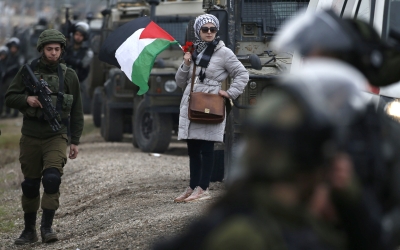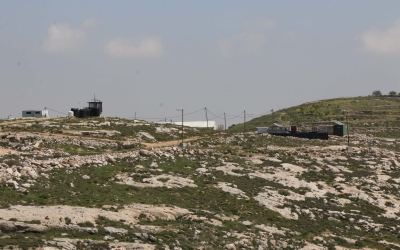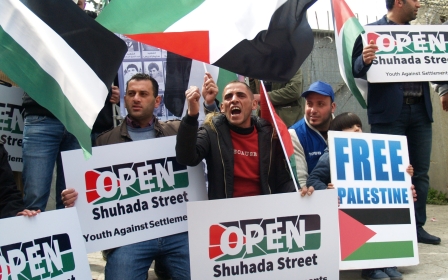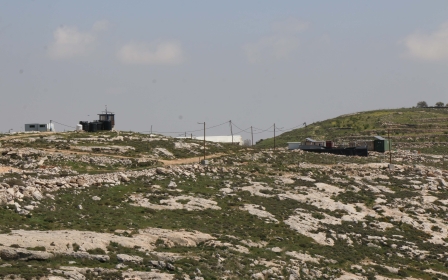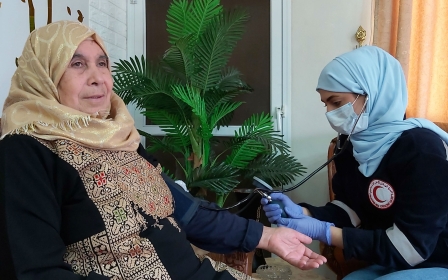Israel to seize Palestinian land near Hebron's Ibrahimi Mosque

Israel's Attorney General Avichai Mandelblit approved on Tuesday the confiscation of Palestinian land in the area of the Ibrahimi Mosque in the city of Hebron, located in the southern occupied West Bank.
Final approval still remains in the hands of Prime Minister Benjamin Netanyahu, local media reported. Israeli Defence Minister Naftali Bennett already greenlit the expropriation plan in December.
New MEE newsletter: Jerusalem Dispatch
Sign up to get the latest insights and analysis on Israel-Palestine, alongside Turkey Unpacked and other MEE newsletters
The land will be seized from the Palestinian Islamic Waqf, a trust in charge of religious endowments, in order to “renovate” it and make it accessible to people with disabilities.
The most populated Palestinian city in the West Bank, Hebron is unlike elsewhere in the occupied territory, as almost 800 Israeli settlers currently live in the heart of the city under heavy military guard - instead of in settlements separate from Palestinian communities.
In total, more than 200,000 Palestinians live in Hebron, including 30,000 in the old city centre.
The old city, including the Ibrahimi Mosque, has been listed as a Unesco World Heritage site since 2017, and is considered a threatened site.
The mosque, known to Israelis as the Tomb of Patriarchs, is a highly contested site. In 1994, an Israeli-American settler killed 29 Palestinians worshipping in the mosque.
In the wake of the massacre, Israel closed off Shuhada Street - a major old city artery - to Palestinians, and divided the holy site into separate spaces for use by Palestinians and settlers. Jewish worshippers have been performing their prayers since then inside the mosque.
Israel’s Ministry of Justice said in a statement that Tuesday's decision was made in collaboration with the Civil Administration, a military-led body tasked with handling agricultural and building permits, roads, water and electricity issues in the West Bank.
Israeli authorities have justified the expropriation in order to build an elevator and ramp to allow people with disabilities, including tourists and Jewish worshippers, to access the holy site.
An old wholesale market on Shuhada Street owned by the Palestinian municipality of Hebron is also set to be razed to make room for the controversial project.
The Palestinian Authority (PA) Ministry of Waqf and Religious Affairs condemned the Israeli government's move.
“The decision is an assault on the Muslims' ownership of the Ibrahimi Mosque and the endowments that surround it, which are numerous in the city of Hebron,” the ministry said.
In December, Israel approved the expansion of the settlements inside Hebron, including the construction of 70 new housing units that could double the settler population in the city.
Palestine Liberation Organisation (PLO) executive committee member Hanan Ashrawi also slammed the Israeli decision as a "provocative and irresponsible action that will stoke religious sensitivities".
"It is a cynical exploitation of the world’s focus on combating the Covid-19 pandemic and a reflection of Israel’s wilful determination to speedily execute its aggressive plans to the service and benefit of the colonial settlement regime that is devouring Palestine," she said in a statement.
Middle East Eye delivers independent and unrivalled coverage and analysis of the Middle East, North Africa and beyond. To learn more about republishing this content and the associated fees, please fill out this form. More about MEE can be found here.


